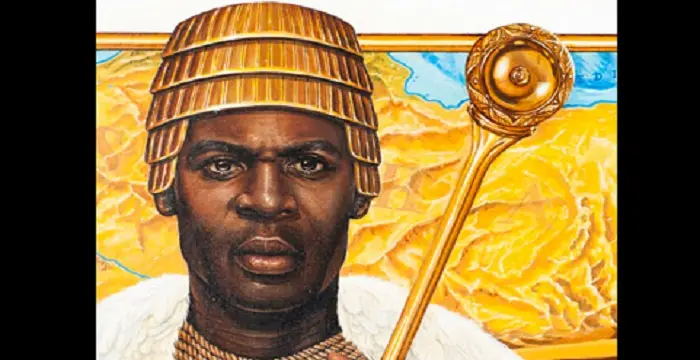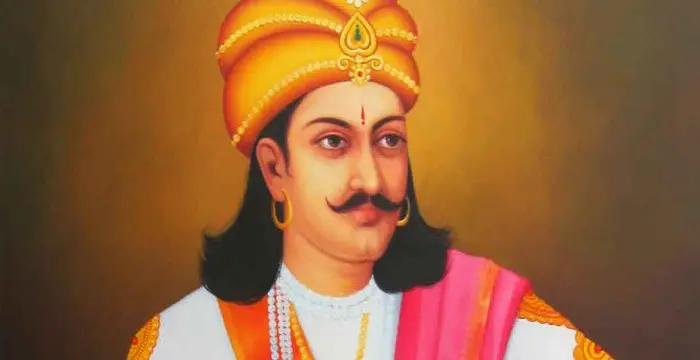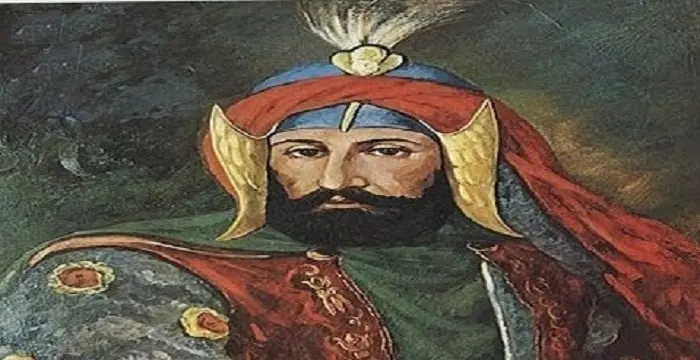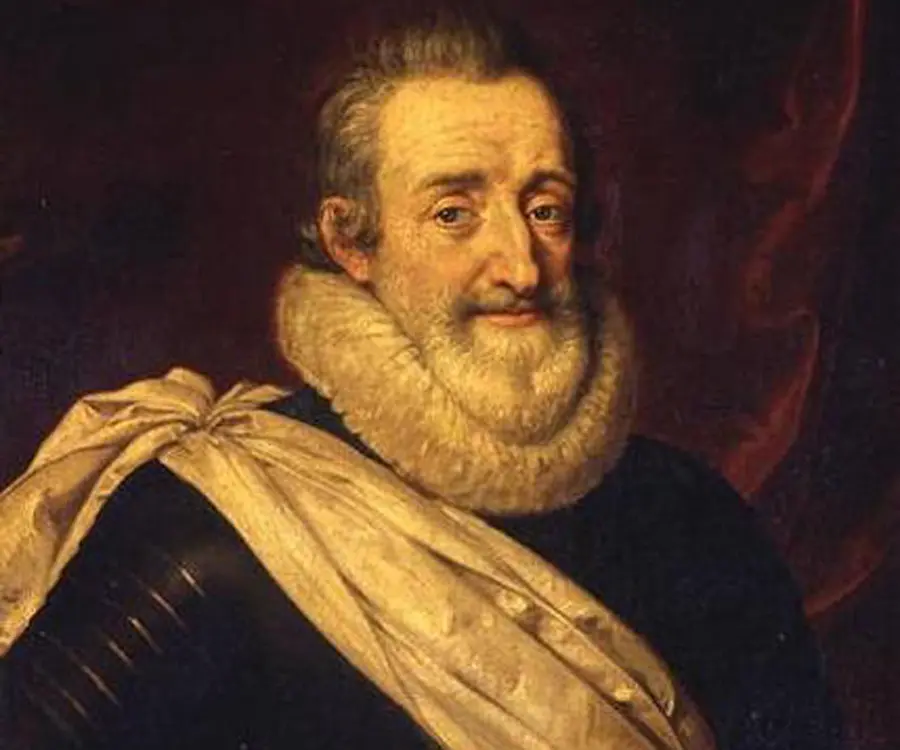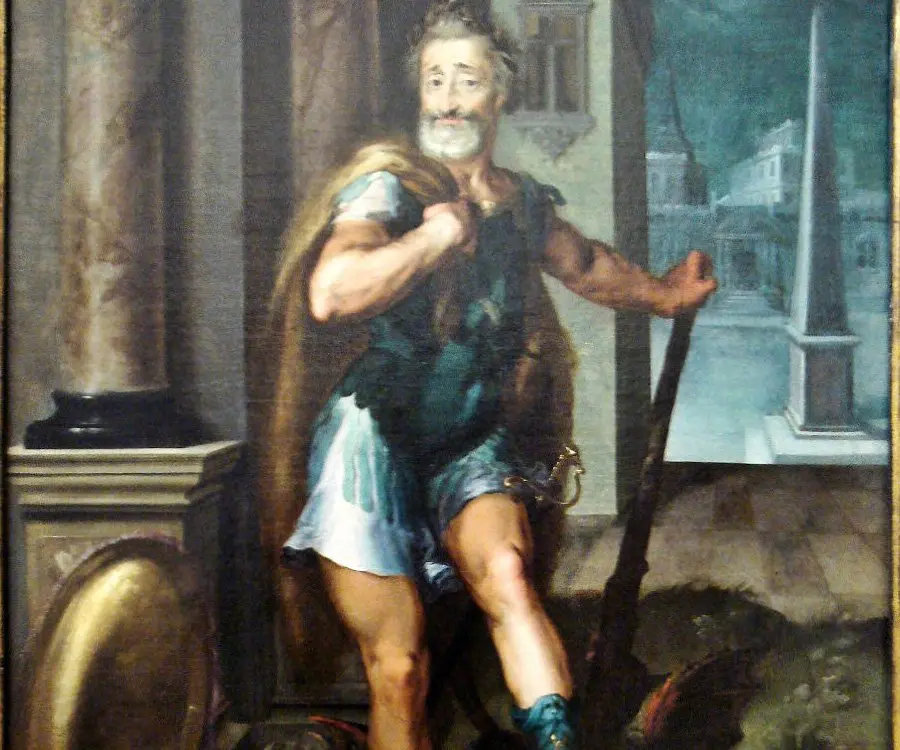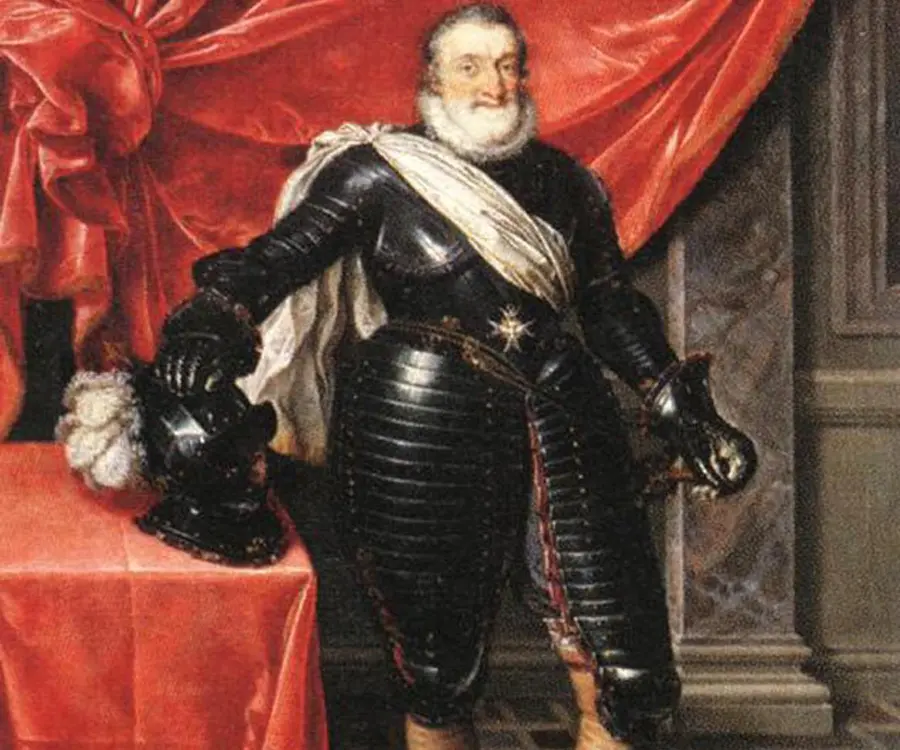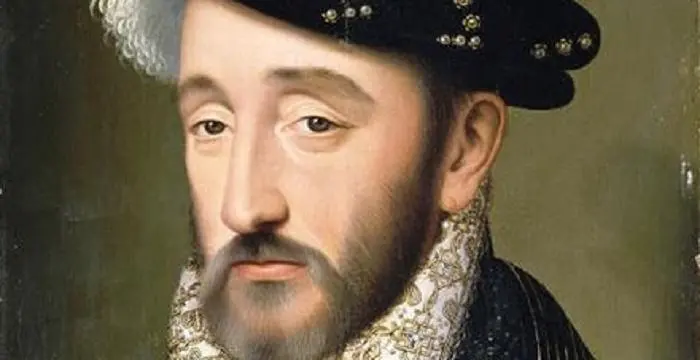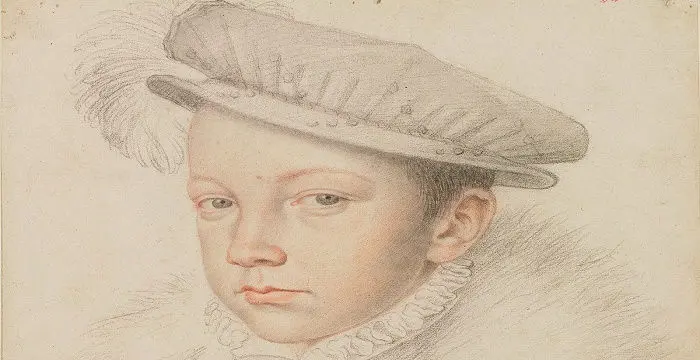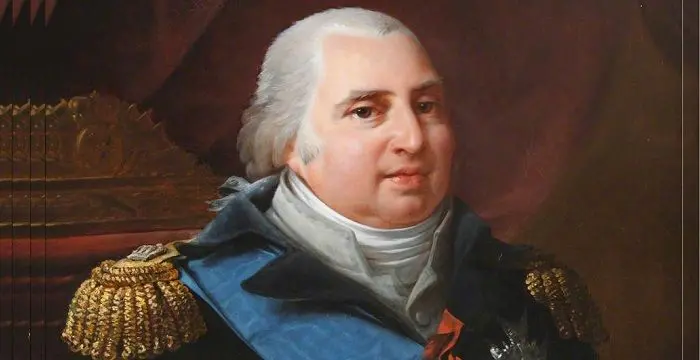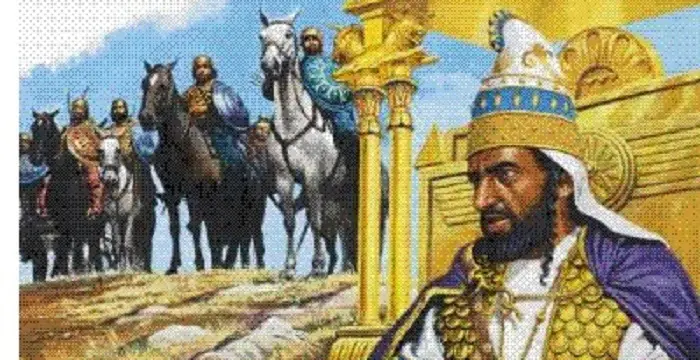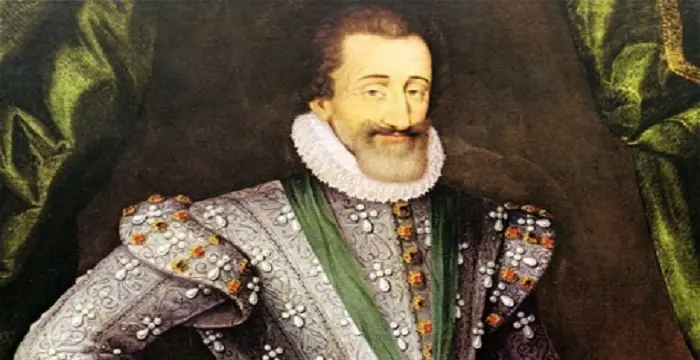
Henry IV of France - King of Navarre, Birthday and Facts
Henry IV of France's Personal Details
Henry IV was King of Navarre and King of France from 1589 to 1610
| Information | Detail |
|---|---|
| Birthday | December 13, 1553 |
| Died on | May 14, 1610 |
| Nationality | French |
| Famous | Historical Personalities, Emperors & Kings, Emperors, King of France, King of Navarre, Kings |
| Nick names | E Vert Galant, Henri le Grand, Le Bon Roi Henri, Good King Henry |
| Spouses | Margaret of France |
| Siblings | Catherine de Bourbon |
| Childrens | Louis XIII of France |
| Founder / Co-Founder |
|
| Cause of death |
|
| Birth Place | Pau, Pyrénées-Atlantiques |
| Religion | Roman Catholicism |
| Gender | Male |
| Father | Antoine of Navarre |
| Mother | Jeanne III of Navarre |
| Sun Sign | Sagittarius |
| Born in | Pau, Pyrénées-Atlantiques |
| Famous as | King of France, King of Navarre |
| Died at Age | 56 |
// Famous Kings
Sundiata Keita
Sundiata Keita was the founder of the Mali Empire in West Africa. This biography profiles his childhood, early life, struggles, founding of empire, rule, administration, achievements and also gives some fun facts.
Ashoka
Ashoka was the third emperor of the Mauryan Dynasty and ruled almost the entire Indian subcontinent. This biography profiles his childhood, life, reign, achievements and timeline
Murad IV
Murad IV was one of the mighty Sultans in the history of the Ottoman Empire. This biography profiles his childhood, family, accession, rule, administration and timeline.
Henry IV of France's photo
Who is Henry IV of France?
Henry IV of France, who ruled from 1589 till his death in 1610, was the first Bourbon monarch to sit on the throne of France. Prior to that, he was known as Henry III of Navarre and ruled over the state from 1572 to 1610. Henry IV’s ascendancy to the throne of France was mired with controversy. His predecessor, King Henry III belonged to the House of Valois. He did not have any male successor and the Salic law did not allow women or their descendants to occupy the throne. On the other hand, Henry of Navarre was the next agnatic descendant of King Louis IX. Consequently, Henry III was forced to recognize him as his successor. Yet, many nobles opposed his succession on the ground that Henry was a Protestant. Ultimately, he had to use military power to occupy the throne. At the same time, he was a man of vision and courage. He soon won the hearts of his subjects through many benevolent acts. Under him France enjoyed relative prosperity and his concern for the financial state of the pheasants was highly appreciated. He was often referred as ‘Good King Henry’ by his loyal subjects.
Childhood & Early Life
King Henry IV of France was born on December 13, 1553 to Queen Joan III of Navarre and Bearn and her consort King Antoine de Bourbon in Pau. The couple had five children, out of which Henry III of Navarre was born second. Through his father’s side, he was a direct descendent of the thirteenth century king, Louis IX of France.
Henry III’ of Navarre’s elder brother Henry, Duke of Beaumont died at the age of two in 1553 and his younger brother Louis Charles, Count of Marle died in 1557. This made him the only surviving son of the reigning queen. Since Antoine de Bourbon was a Catholic, Henry III was baptized as one.
From 1561 to 1566 Henry III of Navarre spent a lot of time with his second cousins, the children of King Henry II of France. He was brought back to Bearn when he turned 13. His military education began around the same time. The queen, who was a follower of John Calvin, began to bring him up as a Protestant.
By that time, the conflict between the Protestants and the Catholics had started. In the autumn of 1567, the queen launched an expedition against the rebellious Catholic gentry in South Navarre. Henri III, who was then around fourteen years old, became its nominal head.
Henri III of Navarre went on another expedition in 1568; this time under the leadership of his brother in law Louis I de Bourbon, Prince de Condé. However, they were defeated on March 30, 1569. The young Prince then had further military education under Gaspard de Coligny.
In 1570, Henri III of Navarre was put in charge of the Huguenot army. The long campaign through ravaged area instilled in him a military spirit that would remain with him for the rest of his life. He specially distinguished himself on June 26 at the Battle of Arnay-le-duc. Peace was concluded in August, 1570.
To strengthen the peace, marriage was arranged between Prince Henri III of Navarre and Margaret of Valois, the daughter of King Henri II of France. However, before the marriage could be solemnized the Queen of Navarre, Joan III, died on June 9, 1572.
As the King of Navarre
Henri’s father Antoine de Bourbon had already passed away in 1562. On his mother’s death in 1572, Henri now ascended the throne of Navarre and began to be known as Henri III of Navarre and Sovereign Lord of Bearn.
Henri’s marriage to Margaret of Valois took place on August 18, 1572. It was followed by massacre of several thousand Protestants, who came to Paris for the wedding. Known in the history as Saint Bartholomew's Day Massacre, it spread to other parts of the country in no time.
King Henri III of Navarre escaped death narrowly; but had to promise to become a Catholic. Moreover, he was confined to the French Court until 1576 and then escaped.
On leaving Paris the King revered back to the Protestant Church. By the end of the year, the civil war broke out once again. The King of Navarre displayed extreme common sense and convinced his co-religionists to accept the Treaty of Bergerac on September 17, 1577.
Prince Francis, Duke of Anjou and Alençon, the brother and heir to reigning king Henry III of France, died on June 10, 1584. With his death, Henri III of Navarre became the ‘heir presumptive’ to the throne of France. Henry III of France did not have any other option but to accept him as his successor.
However, because Henri III of Navarre was a Protestant, the Catholic nobles of the French court refused accept him as their king. The Pope sided with them. The conflict gave rise to ‘The War of Three Henries’. On October 20, 1587, Henry III of Navarre defeated the French army at the Battle of Coutras.
The League of Nobles opposing King Henry III of Navarre then decided to seek the help of the Catholic King of Spain. Others proposed that the Salic law should be revoked. Both of them would have undermined the sovereignty of France. The League had also taken control of Paris.
Realizing the situation, King Henry III of France decided to make peace with King Henry III of Navarre. Together they laid siege to Paris on July 30, 1589. However, King Henry III of France was assassinated on August 2 and with that King Henry III of Navarre became the titular head of France.
The war between the King and League dragged on for nine years. Many of the nobles who sided with King Henry III of France deserted Navarre. Although he won a few major wars, Paris remained under the control of the League. His army too was exhausted.
As King Henry IV of France
Finally, on the advice of his long time mistress Gabrielle d'Estrées Henry III of Navarre decided to reconvert to Catholicism. On July 25, 1593 he announced his intention and became acceptable to vast majority of his subjects.
On February 27, 1594 King Henry III of Navarre was crowned as King Henry IV of France at the Cathedral of Chartres. However, the League of Nobles was still very strong and aided by the King of Spain, they continued their rebellion. Therefore, in January, 1595, the new King declared war on them.
By June, 1595, he had defeated the remaining nobles and their Spanish allies at Fontaine-Française in Burgundy. By 1597, he had captured Amien. On May 2, 1598 the Peace of Vervins was reached between France and Spain. King Henry IV of France now had time to concentrate on restoring order and bringing prosperity to his new kingdom.
Achievements of King Henry IV of France
On April 13, 1598, Henry IV of France signed the Edict of Nantes. It confirmed Roman Catholicism as the state religion and at the same time, it granted religious freedom to Protestants. It also effectively ended the War of Religion that had plagued France for a long time.
He next set his mind towards improving the financial condition of his government. The Edict of Paulette, declared in 1604, helped him to eliminate national debt and create a reserve. However, it also curtailed his power of appointments to a large extent.
To improve the condition of his subjects he began to drain marshes and promote agriculture. He also encouraged the manufacture of luxury items such as silk, glassware and tapestries, which were earlier imported from abroad. To improve transportation, he many canals, bridges and highways built.
On the military front, he fortified the country’s border and made the army stronger. He signed a number of treaties with foreign powers and sent emissaries to Far East and India. He also planned to turn Paris into a centre of art and education. Collège Prytanée Militaire de la Flèche was built in his time.
Personal Life & Legacy
As King Henry III of Navarre, he had married Margaret of Valois, the daughter of King Henri II of France, on August 18, 1572. However, the couple mostly lived apart and did not have any issue.
In1590, the king met Gabrielle d'Estrées and fell in love with her. Although the king was already married, the couple was openly affectionate to each other. Gabrielle even accompanied the king on his war expeditions and took personal care of him. She had three children by him.
It soon became apparent that Henry IV should have a legitimate successor. Although he wanted to annul his marriage with Margaret and marry Gabrielle but his councilors did not agree. However, the problem was solved by Gabriell’s death in 1599.
The King’s marriage to Margaret was annulled in the same year and in October 1600, the king married Marie d’ Medici. The couple had six children, out of which Louis XIII, the successor to King Henry IV was the eldest.
King Henry IV took few other mistresses and had children with them. For such philandering, he was nicknamed ‘E Vert Galant’. His other nicknames were ‘Henri le Grand’ and ‘Le Bon Roi Henri’.
In spite of his popularity several attempts on his life were made. King Henry IV of France was finally assassinated on May 14, 1610 by a fanatic called François Ravaillac. He was stabbed to death on Rue de la Ferronnerie when his carriage was halted by a road blockage.
// Famous King of France
Henry II of France
Henry II of France was a monarch who ruled France from 1547 to 1559. Check out this biography to know about his birthday, childhood, family life, achievements and fun facts about him.
Francis II of France
Francis II of France was the eldest son of King Henry II and Catherine de’ Medici. Check out this biography for more information about his childhood, family, personal life, etc.
Louis XVIII of France
King Louis XVIII was the King of France from 1814 to 1824. Check out this biography to know about his childhood, life, achievements, works & timeline.
Henry IV of France biography timelines
- // 1553 To 1557Henry III’ of Navarre’s elder brother Henry, Duke of Beaumont died at the age of two in 1553 and his younger brother Louis Charles, Count of Marle died in 1557. This made him the only surviving son of the reigning queen. Since Antoine de Bourbon was a Catholic, Henry III was baptized as one.
- // 13th Dec 1553King Henry IV of France was born on December 13, 1553 to Queen Joan III of Navarre and Bearn and her consort King Antoine de Bourbon in Pau. The couple had five children, out of which Henry III of Navarre was born second. Through his father’s side, he was a direct descendent of the thirteenth century king, Louis IX of France.
- // 1561 To 1566From 1561 to 1566 Henry III of Navarre spent a lot of time with his second cousins, the children of King Henry II of France. He was brought back to Bearn when he turned 13. His military education began around the same time. The queen, who was a follower of John Calvin, began to bring him up as a Protestant.
- // 1562 To 1572Henri’s father Antoine de Bourbon had already passed away in 1562. On his mother’s death in 1572, Henri now ascended the throne of Navarre and began to be known as Henri III of Navarre and Sovereign Lord of Bearn.
- // 1567By that time, the conflict between the Protestants and the Catholics had started. In the autumn of 1567, the queen launched an expedition against the rebellious Catholic gentry in South Navarre. Henri III, who was then around fourteen years old, became its nominal head.
- // 1568 To 30th Mar 1569Henri III of Navarre went on another expedition in 1568; this time under the leadership of his brother in law Louis I de Bourbon, Prince de Condé. However, they were defeated on March 30, 1569. The young Prince then had further military education under Gaspard de Coligny.
- // 1570In 1570, Henri III of Navarre was put in charge of the Huguenot army. The long campaign through ravaged area instilled in him a military spirit that would remain with him for the rest of his life. He specially distinguished himself on June 26 at the Battle of Arnay-le-duc. Peace was concluded in August, 1570.
- // 9th Jun 1572To strengthen the peace, marriage was arranged between Prince Henri III of Navarre and Margaret of Valois, the daughter of King Henri II of France. However, before the marriage could be solemnized the Queen of Navarre, Joan III, died on June 9, 1572.
- // 18th Aug 1572Henri’s marriage to Margaret of Valois took place on August 18, 1572. It was followed by massacre of several thousand Protestants, who came to Paris for the wedding. Known in the history as Saint Bartholomew's Day Massacre, it spread to other parts of the country in no time.
- // 18th Aug 1572As King Henry III of Navarre, he had married Margaret of Valois, the daughter of King Henri II of France, on August 18, 1572. However, the couple mostly lived apart and did not have any issue.
- // 1576King Henri III of Navarre escaped death narrowly; but had to promise to become a Catholic. Moreover, he was confined to the French Court until 1576 and then escaped.
- // 17th Sep 1577On leaving Paris the King revered back to the Protestant Church. By the end of the year, the civil war broke out once again. The King of Navarre displayed extreme common sense and convinced his co-religionists to accept the Treaty of Bergerac on September 17, 1577.
- // 10th Jun 1584Prince Francis, Duke of Anjou and Alençon, the brother and heir to reigning king Henry III of France, died on June 10, 1584. With his death, Henri III of Navarre became the ‘heir presumptive’ to the throne of France. Henry III of France did not have any other option but to accept him as his successor.
- // 20th Oct 1587However, because Henri III of Navarre was a Protestant, the Catholic nobles of the French court refused accept him as their king. The Pope sided with them. The conflict gave rise to ‘The War of Three Henries’. On October 20, 1587, Henry III of Navarre defeated the French army at the Battle of Coutras.
- // 30th Jul 1589Realizing the situation, King Henry III of France decided to make peace with King Henry III of Navarre. Together they laid siege to Paris on July 30, 1589. However, King Henry III of France was assassinated on August 2 and with that King Henry III of Navarre became the titular head of France.
- // 1590In1590, the king met Gabrielle d'Estrées and fell in love with her. Although the king was already married, the couple was openly affectionate to each other. Gabrielle even accompanied the king on his war expeditions and took personal care of him. She had three children by him.
- // 25th Jul 1593Finally, on the advice of his long time mistress Gabrielle d'Estrées Henry III of Navarre decided to reconvert to Catholicism. On July 25, 1593 he announced his intention and became acceptable to vast majority of his subjects.
- // 27th Feb 1594 To 1595On February 27, 1594 King Henry III of Navarre was crowned as King Henry IV of France at the Cathedral of Chartres. However, the League of Nobles was still very strong and aided by the King of Spain, they continued their rebellion. Therefore, in January, 1595, the new King declared war on them.
- // 13th Apr 1598On April 13, 1598, Henry IV of France signed the Edict of Nantes. It confirmed Roman Catholicism as the state religion and at the same time, it granted religious freedom to Protestants. It also effectively ended the War of Religion that had plagued France for a long time.
- // 1599It soon became apparent that Henry IV should have a legitimate successor. Although he wanted to annul his marriage with Margaret and marry Gabrielle but his councilors did not agree. However, the problem was solved by Gabriell’s death in 1599.
- // Oct 1600The King’s marriage to Margaret was annulled in the same year and in October 1600, the king married Marie d’ Medici. The couple had six children, out of which Louis XIII, the successor to King Henry IV was the eldest.
- // 1604He next set his mind towards improving the financial condition of his government. The Edict of Paulette, declared in 1604, helped him to eliminate national debt and create a reserve. However, it also curtailed his power of appointments to a large extent.
- // 14th May 1610In spite of his popularity several attempts on his life were made. King Henry IV of France was finally assassinated on May 14, 1610 by a fanatic called François Ravaillac. He was stabbed to death on Rue de la Ferronnerie when his carriage was halted by a road blockage.
// Famous Emperors
Sundiata Keita
Sundiata Keita was the founder of the Mali Empire in West Africa. This biography profiles his childhood, early life, struggles, founding of empire, rule, administration, achievements and also gives some fun facts.
Ashoka
Ashoka was the third emperor of the Mauryan Dynasty and ruled almost the entire Indian subcontinent. This biography profiles his childhood, life, reign, achievements and timeline
Murad IV
Murad IV was one of the mighty Sultans in the history of the Ottoman Empire. This biography profiles his childhood, family, accession, rule, administration and timeline.
Xerxes I
Xerxes I (Xerxes the Great) was the fourth and the most famous king of the Archaemenid dynasty of Persia. This biography profiles his childhood, family, personal life, life history, achievements, campaigns, administration, death and other facts.
Sargon of Akkad
Sargon of Akkad, also called ‘Sargon the Great’, ‘Sarru-Kan’ and ‘Shar-Gani-Sharri’, was the founder and first king of the Akkadian Empire. This biography profiles his childhood, life, rule, administration, timeline, and gives some fun facts.
Abdullah of Saudi Arabia
Abdullah bin Abdulaziz Al Saud was the King of Saudi Arabia from 2005 to 2015 and the third wealthiest head of state in the world. Find more facts about his life, childhood and timeline.
Henry IV of France's FAQ
What is Henry IV of France birthday?
Henry IV of France was born at 1553-12-13
When was Henry IV of France died?
Henry IV of France was died at 1610-05-14
Where was Henry IV of France died?
Henry IV of France was died in Paris
Which age was Henry IV of France died?
Henry IV of France was died at age 56
Where is Henry IV of France's birth place?
Henry IV of France was born in Pau, Pyrénées-Atlantiques
What is Henry IV of France nationalities?
Henry IV of France's nationalities is French
What is Henry IV of France nick names?
Henry IV of France's nickNames is E Vert Galant, Henri le Grand, Le Bon Roi Henri, Good King Henry
Who is Henry IV of France spouses?
Henry IV of France's spouses is Margaret of France
Who is Henry IV of France siblings?
Henry IV of France's siblings is Catherine de Bourbon
Who is Henry IV of France childrens?
Henry IV of France's childrens is Louis XIII of France
Which company or organization was founded by Henry IV of France?
Henry IV of France was the founder/co-founder of Prytanée National Militaire
What is Henry IV of France's cause of dead?
Henry IV of France dead because of Assassination
What is Henry IV of France's religion?
Henry IV of France's religion is Roman Catholicism
Who is Henry IV of France's father?
Henry IV of France's father is Antoine of Navarre
Who is Henry IV of France's mother?
Henry IV of France's mother is Jeanne III of Navarre
What is Henry IV of France's sun sign?
Henry IV of France is Sagittarius
How famous is Henry IV of France?
Henry IV of France is famouse as King of France, King of Navarre
